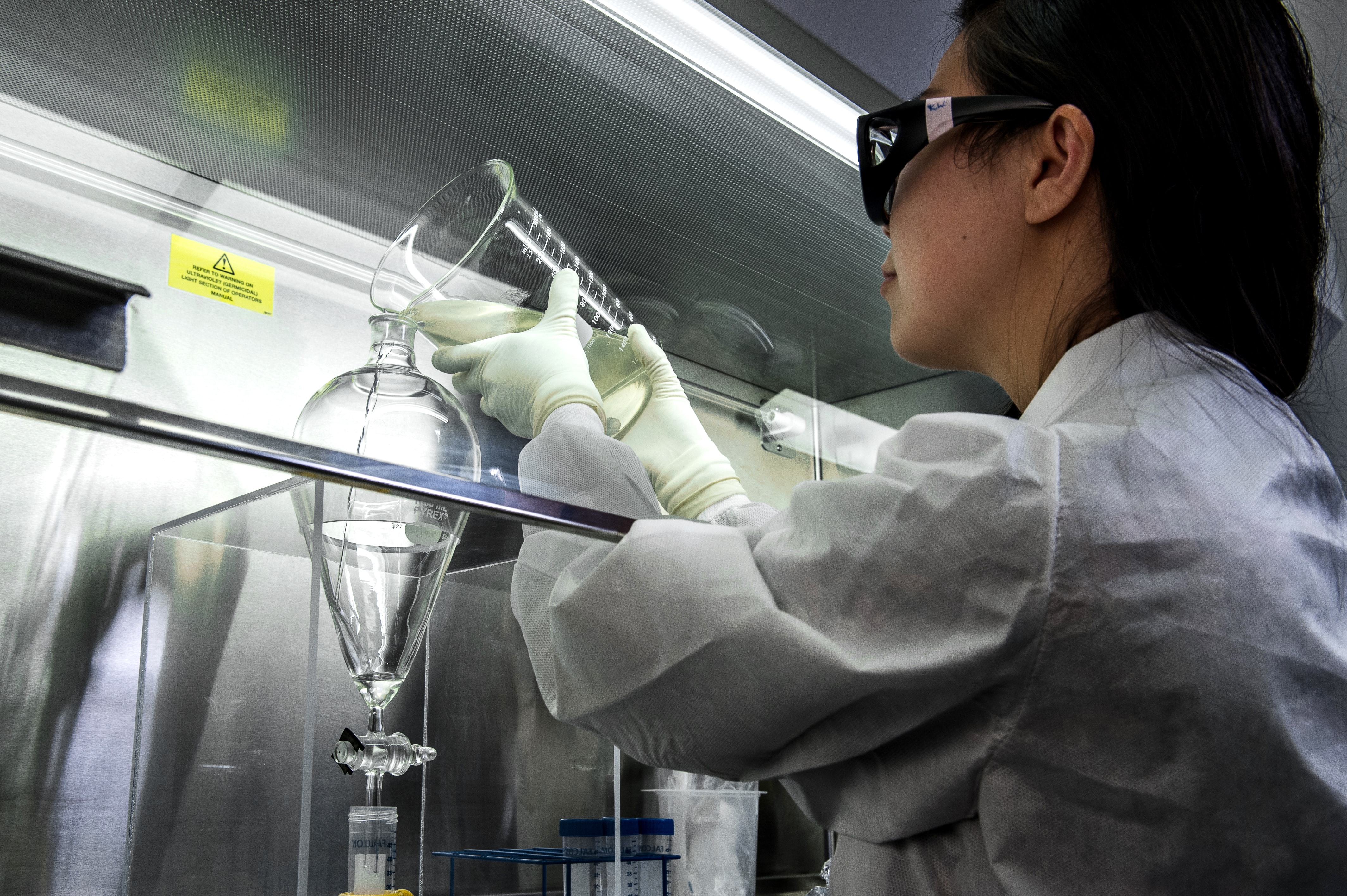
Universities delivering the skills for Wales’ future
In a changing economy, universities are equipping the future workforce with the skills to build a global, vibrant Wales, writes Professor Maria Hinfelaar, Vice-Chancellor of Wrexham Glyndŵr University.
15 Chwefror 2021
This article was originally published on the IWA website.
Economies across the world are in a state of flux.
The changing needs of the workplace, including the increasing automation of tasks, means that people will need to develop new skills and adapt to different ways of working. We are already seeing an increasing demand for higher level skills in Wales. An ageing population and a decline in new entrants to the workforce will mean that finding ways for people of all ages and backgrounds to reskill and upskill will become ever more important.

And then there is climate change. Our ways of working, and the types of industry Wales has, will have to change further. With governments globally committed to reducing carbon emissions, pivoting economies towards greener technology and cutting pollution, the need for new skills in a new and expanding green industrial sector will be crucial in the future.
These challenges loomed large before coronavirus. Now the impact of the pandemic and our changing global relationships as a result of our withdrawal from the EU make these challenges more urgent and more pressing as the shape of our economies shift and growth and shrinkage across different occupation areas accelerate.
We know that a key part of Wales’ ability to make the most of these opportunities will be how effectively we can deliver higher level skills. Universities have a key role in delivering this.
Universities have already committed to expanding the breadth and reach of our skills offer, including part-time and lifelong learning with substantial increases in the number of those studying part-time and postgraduate courses in Wales. But there is more that we can do, working collaboratively with government and other stakeholders to deliver for Wales.
Appropriately for National Apprenticeship Week, degree apprenticeships are an important part of our response to Wales’ skills challenges. We are now nearly two and a half years into the degree apprenticeship programme in Wales which offer full integrated degree programmes in digital, advanced manufacturing and engineering. These programmes include 80% ‘on the job’ learning and take apprentices through a full degree programme with the award of a bachelor’s degree at the conclusion which reflects and assesses on the job learning.
This year there are around 1,160 degree apprentices in Wales and early data shows these programmes are improving access for those on the Welsh Index of Multiple Deprivation and having a positive impact on the number of women able to access careers in computing.
Degree apprenticeships provide a new pathway into lifelong learning that might not have been there before. It is a scheme which benefits both learners and employers and it is something which can provide ammunition in our skills arsenal as we prepare for a more dynamic future.

Wales’ ability to adapt and make the most of technological change will also be in part reliant on our capacity for research and innovation. The ways in which our universities work with employers, including smaller businesses with less capacity for R&D, can provides opportunities to not only upskill employees but also ensure that businesses benefit from Wales’ strong research and innovation sector. Degree apprenticeships also offer a valuable way to promote knowledge exchange: bringing together apprentices, businesses and universities to share knowledge and experiences in a way which benefits them all.
With this year’s Senedd elections quickly approaching, now is the right time to look ahead at what the next Welsh Government and Senedd can do to help Wales tackle the challenges we face and make the most of the opportunities.
We know how important it is to create opportunities for people to gain skills and make those opportunities accessible, ensuring lifelong learning is a cornerstone to the nation’s well-being.
That means sustainable funding, cross-sector partnerships and a nimble higher education system which can respond quickly to whatever unseen challenges emerge in the decades to come.
In Universities Wales’ ‘Building Wales’ Future’ we highlighted how by providing support for a greater range of degree apprenticeships, the benefits of the programmes could be brought to more people, enabling a greater number of existing apprentices to have a work-based route to a degree.
But more than this, we call for an ambitious Universities for Skills programme. One which supports innovation and collaboration by scaling up existing activity and develops new systems of flexible learning. There is no one-size-fits-all solution to providing higher level skills but there is an opportunity to use the diversity of our institutions, which reflect the geographic and social diversity of Wales, to ensure that those who need to retrain or upskill are able to do so.
Yes, the future is uncertain and planning for it is difficult, but the assets we have in Wales and the culture of collaboration means we can make it an exciting future too. And one where Wales’ strengths as a small and agile nation can be used to our advantage.

